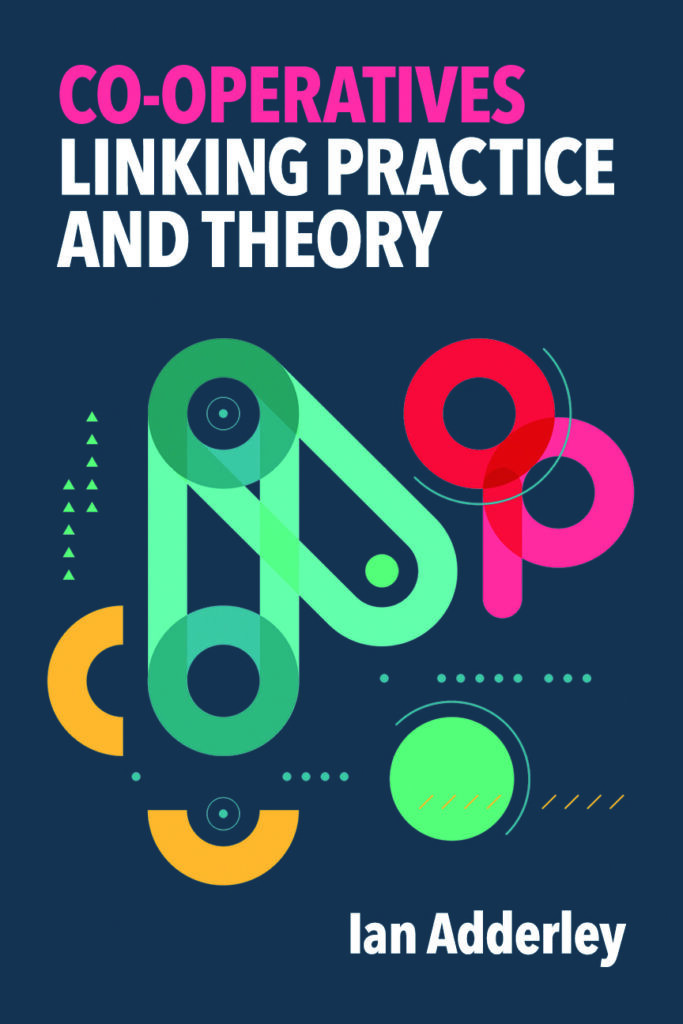Co-operatives: Linking practice and theory, Ian Adderley Co-op Press, £45 (hb); £24,99 (pb)
It’s one of the perennial bugbears of the co-op movement: it could offer powerful mechanisms for growth, democracy, control, sustainability, inclusion and cohesion – if only people knew about it; if only they understood it.
Now Ian Adderley – a dedicated servant of the movement with his roles at the Financial Conduct Authority, UK Society for Co-operative Studies, Co-op Heritage Trust and elsewhere – has volunteered to do his bit by writing a beginner’s primer to the movement. He’d been asked to recommend such a book by a civil servant on a visit to the Rochdale Pioneers Museum and, unable to think of one, spotted a gap in the market.

The result, Co-operatives: Linking Theory and Practice, offers a clearly written and well set-out introduction to the movement which will also be of use to those more seasoned in the world of co-ops. A refresher course never goes amiss and, from the get-go, Adderley opens the book with a valuable glossary of terms – and a list of co-op acronyms, especially useful given the movement’s occasional alphabet soup tendencies.
From there, he starts in the logical place, a legal definition of co-ops – “enterprises owned by and run for the benefit of people (members) who democratically control it. They are values-based businesses – generally operating to the International Cooperative Alliance Statement of Identity, Values and Principles, which includes values such as self-help, self-responsibility, equality, equity and solidarity.”
Related: Q&A with Ian Adderley
The book follows in three parts. He introduces the movement with a short history, international overview, and more detailed exploration of the UK movement.
This comes with a useful survey of other purpose-led businesses – such as mutuals, social enterprises, charities, and the wider social and solidarity economy. It’s important both in terms of showing the wider context for co-operatives, and in establishing their point of difference.
Next, technical chapters explore co-operative governance, law, finance, and economics. This gets down to the nitty gritty of how co-ops work – and the operating context they require in terms of law and regulation. Here, a lack of understanding in the wider world – among educators, policymakers and financers – has long hampered the movement. A copy of Adderley’s book might well help them find a way forward for the movement, as he sets out the needs of co-operatives alongside a well-detailed history of UK co-op law.
The final part moves on from the ‘how’ to the ‘why’ and looks at co-operative thinking – with reference to ideology, politics, and religion, before concluding with education and social responsibility.
The global co-op movement can seem Byzantine to newcomers in its scale and complexity and Adderley does a good job in keeping things clear and simple, with effective use of bullet points, tables and footnotes to keep the information flowing clearly. And he’s very clear and full when it comes to citing and explaining his sources.
Usefully, when discussing those all-important co-op values, he offers a thorough definition of terms like “self-help”, “self-responsibility”, “equality” and “equity”.
And he counsels us to not get too caught up in theory at the expense of practice. The important thing is that co-operation works.
For example, he notes: “It is difficult to not observe that large amounts of critical economic theory in relation to co-operatives is rebutted by the continued successful operation of so many co-operatives. In many cases, practice seems to default the theory.
“We see co-operatives operating around the globe – in rural, industrialised, and post-industrial economies, at varying scales. Similarly, they operate as co-operatives of producers, workers, consumers, or a mix of these, straddling both demand and supply sides of economic activity. These factors no doubt contribute to challenges in theorising co-operatives economically. These challenges seem most prevalent in economic theory neglecting the person, and best addressed by recognising the role people play in co-operatives.”
Still, theory is important: it will always catch up once someone has started running a form of co-op successfully, Adderley argues, and it is needed so that the right legal framework can be created to recognise it.
“Where theory is informed by practice, it is enhanced. Good theory can then help facilitate increased good practice. We must therefore continue linking practice and theory.”
Co-operatives: Linking Practice and Theory is available in bookshops. You can also buy direct from the distributor, IngramSpark: hardback (£45) or paperback (£24.99).

